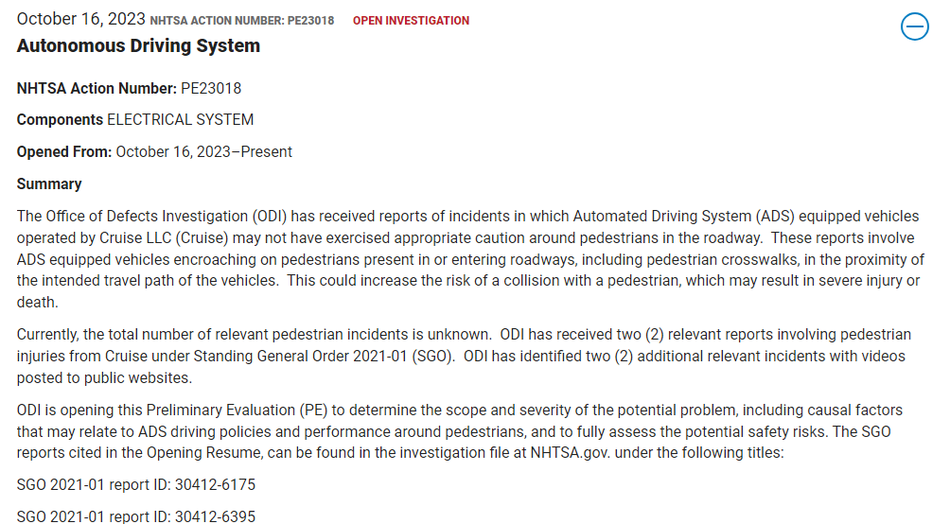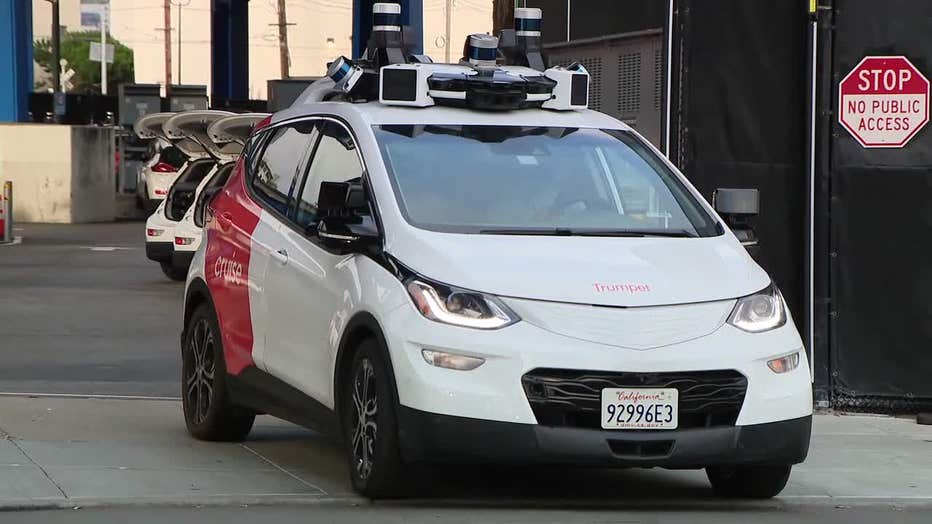Automated car company looking to launch in Dallas faces second federal investigation over safety

Automated vehicles set to launch in Dallas investigated
NHTSA's Office of Defects investigation opened the investigation into Cruise LLC this week after receiving reports of two pedestrian injuries, as well as two "relevant" videos posted to social media.
DALLAS - The autonomous vehicle company planning to soon launch its driverless cars onto Dallas streets is now facing a second federal investigation.
NHTSA's Office of Defects investigation opened the investigation into Cruise LLC this week after receiving reports of two pedestrian injuries, as well as two "relevant" videos posted to social media.
According to the NHTSA investigation, the vehicles operated by Cruise LLC could increase the risk of collision with a pedestrian which may result in severe injury or death.
Cruise has been running tests on the vehicles since June, the final stage before the fully-automated rideshare service allows public passengers.
Just last week, Dallas City Council members heard a presentation from Cruise LLC about the company's planned rollout on city streets.
"These cars cannot be remotely driven for safety purposes, we want to make sure no one can take the remote of these vehicles," Yariel Diaz, Cruise LLC's Senior Manager of Government Affairs told the council.
Just days later, the federal safety agency NHTSA opened its second investigation of Cruise, which is already operating in Austin, Phoenix and San Francisco.
The summary says "The Office of Defects Investigation (ODI) has received reports of incidents in which Automated Driving System (ADS) equipped vehicles operated by Cruise LLC (Cruise) may not have exercised appropriate caution around pedestrians in the roadway."

We asked Cruise for a response. Here is what they sent us:
The NHTSA report says the total number of relevant pedestrian incidents is "unknown."
Despite concerns like these, Cruise does not need City Council's approval to launch its driverless Chevy Bolts on Dallas streets.
Diaz explained a new state law prevents cities from regulating autonomous vehicles.
"[Autonomous vehicles are] regulated at the state level, doesn't mean we don't engage cities, because you will get the call if something happens," he said.
Diaz told council members that its autonomous vehicles have a better safety record than human drivers, with 65% fewer collisions overall.
When councilwoman Cara Mendlesohn asked about how many collisions Cruise has been involved in, Diaz said there have been 20 incidents in Texas since November.
There are now 125 vehicles operating in Austin.
Mendelsohn asked to see collision data for their entire fleet.

When they launch, the vehicles will operate between 30 and 35 miles per hour.
The company has not yet released a map of where they will be operating.

